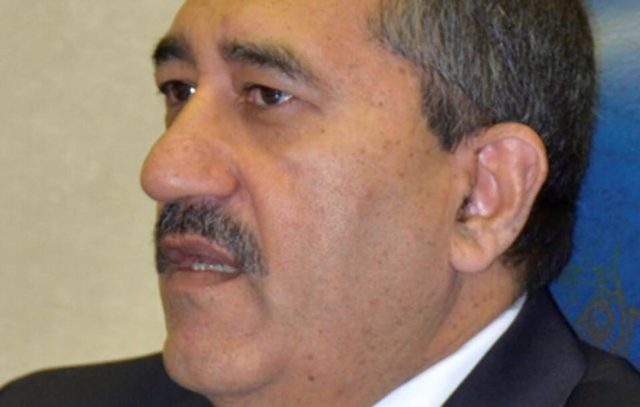Goolam Akharwaray, who ended his term as Sol Plaatje municipal manager last week, believes that the municipality can be saved.
GOOLAM Akharwaray, who ended his term as Sol Plaatje municipal manager last week, believes that the municipality can be saved.
He stated that during his 13-year tenure he had actively promoted ethical governance by buying even his own bottled water.
In his closing out report, Akharwaray stated that when he took up his position on September 1, 2009 the municipality was in financial distress with expenses exceeding income.
“The collection rate was around 50 percent and reserves were zero, making it impossible to plan any activity or service. Tender procedures were flouted, leading to constant litigation and delaying tactics.”
He added that political infighting and labour instability was rife, with committees not convening for months.
“The municipality was considered dysfunctional and potentially ripe for placement under administration as provided by the Constitution.”
Akharwaray stated that a multi-disciplinary intervention strategy was put in place to restore confidence in the institution and improve financial management and viability, infrastructure, human resource management, service delivery and local economic development.
“The core approach was to address revenue as without financial resources any plans for a turnaround would be stillborn. To go back several years to address root causes of the problems in financial governance and take necessary remedial actions we had to fix the foundations.”
He added that it was imperative to implement a zero-tolerance approach towards violations and transgressions and to respect budgets “as a law that has to be adhered to”.
Akharwaray stated that items that he focused on included improving the quality of the city’s water; dealing with the moratorium on development; bulk infrastructure in the city including the renewal of the water purification plant; and building a new sewage plant for Homevale and Ritchie.
“Revenue collection strategies resulted in improving collections considerably. The look and feel of the city also experienced an improvement through cleaning and repair activities.”
He added that by 2014 overall stability was achieved in governance and leadership of the municipality.
“The collection rate reached 93 percent at its highest but on average remained 85 percent. The auditor-general audit opinions improved to unqualified, capital expenditure improved to almost 100 percent. No claims of tender violations were reported for several consecutive years.”
He noted that Sol Plaatje Municipality was considered to be a fully functional institution.
“The construction sector became active, with R3 million being invested in the university, two hospitals, commercial departments, while the city was also becoming an events destination for national conferences.”
Akharwaray stated that by 2016 the municipality was ranked among the top four financially viable and well managed in the country.
He said that due to the community uproar over electricity tariffs and events with “considerable political overtones” in 2018, the fortunes of the municipality were reversed.
“The issue of the electricity tariffs was deliberately misrepresented, resulting in the tariff being put on hold. This led to an undercharge. This was aggravated by under-collection of revenue due to the municipality.
“The incidence of Covid-19 made worse what was already a dire situation.”
Akharwaray noted how irregular expenditure ballooned from nil in 2016/17 to R500 million in 2021/22.
Cash reserves of almost R300 million in 2016/17 dwindled to zero in 2021/22, while the municipality is currently unable to pay its creditors.
“It is unfortunate that the progress achieved over several years has been decimated, leaving the municipality in a difficult situation at present. Despite this, the municipality has proven potential in becoming a model institution,” he added.
Akharwaray advised the current leadership to deal urgently with creditors, in particular Eskom, to minimise risks.
“We need to improve the collection rate for services and address water and electricity losses due to theft and vandalism. Undetected leaks on the 900-millimetre pipeline need to be attended to. The proposal to replace the pipeline has national support and now needs to be converted to a bank proposal.”
Akharwaray said that after 28 years in public service he would be concentrating on his business interests in Kimberley.
He added that National Treasury had requested him to share his knowledge and experience on how he managed to turn around Sol Plaatje Municipality.
“The strategy may be adapted to assist struggling municipalities in line with their unique circumstances.”








